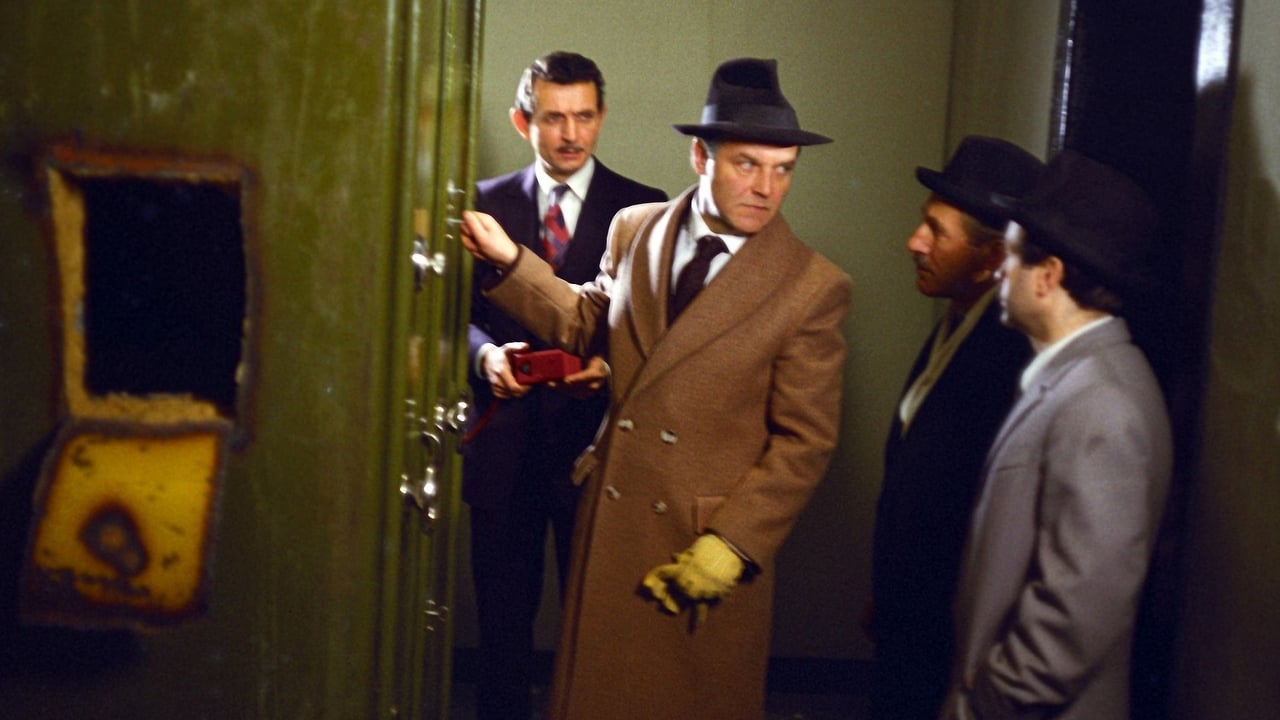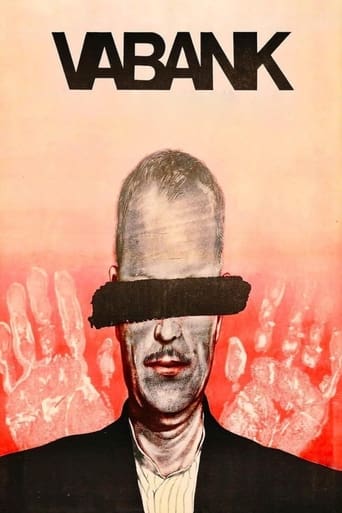

Good concept, poorly executed.
... View MoreBad Acting and worse Bad Screenplay
... View MoreIt's hard to see any effort in the film. There's no comedy to speak of, no real drama and, worst of all.
... View MoreIf you like to be scared, if you like to laugh, and if you like to learn a thing or two at the movies, this absolutely cannot be missed.
... View MoreThis is a debut movie from Juliusz Machulski , Polish director who is in Poland often called "Polish Spielberg" . He specialize in making comedies and "Vabank" is one of his best movies. It's a movie about con artists set in Warsaw in the 30's , before World War II.The movie was made in the 80's in Poland during the communism , so the budget wasn't too big and the art-direction might look a little cheap for modern audiences . It's the script that is the star of movie . Full of Polish brisk humor and many small twists it's a pleasure to watch . The final is really surprising . It's also interesting that main hero is played by Jan Machulski father of the director and that the opening credits appear after 7 minutes of the movie.Add to that a good direction , professional acting (good Jan Machulski as the hero , great Leonard Pietraszak as the villain) , elegant and catchy music by Henryk Kuźniar and a lot of charm – "Vabank" is must see for all movie lovers .I give it 8/10.
... View MoreThe movie is like a delicate puzzle. A jigsaw, the elements of which are being gradually attached one to another, bit by bit. The style of the director impresses me greatly: more than a decade ago I watched "Deja Vu" and that turned out to be an extremely enjoyable experience too. That director knows how to manipulate the viewer's feelings. At one moment you are all way down and frustrated (here I was in distress when I noticed that metal object left by the robbers damn, I thought they "f***ed up") and at another you get big and absolutely unexpected surprises that come in hordes (the Negro, the Natasha, the big dog, the flat, the alibi, etc.).I'm wondering if the second movie is of the same quality soon I shall hopefully find it out. The actors' performances are very natural: nobody is fighting in "matrix" style and nobody is showing off by shooting the whole supply of ammo into baddies. The four crooks, who are the main characters of this picture, are quite nice. The crime they are committing is understandable and can be justified by the standards of down-to-earth human conscience. Though I think that I watched this film attentively, I still cannot get at least one machination shown (the one with the fingerprints). It means I will have to re-watch this comedy again and I've got nothing against it, while the movie is a real treat.My vote is 10 out of 10 let me proclaim that this is the best crime film I have seen so far. "Pulp Fiction" has no chance: it is like a teen music video if compared to this clever cinema. Thank you for attention.
... View MoreThis film is not only one of the best ever made in Poland, this is the work that was and is extremely popular in my country, Russia. Elegant humor, brilliant script, impeccable play of all actors made this film a classic which it fairly remains to be now. It's hard to believe that it was filmed in 1982, in the middle of the political and social turmoil which besotted Poland that time, the country was on the brink of a civil war, but one will never even guess it while watching the movie. It's all thanks to the genius of Juliusz Machulski, the director, script writer and the brother of Jan Machulski who played the main hero, Kwinto. The film takes place in the 1930's, before the war and when Poland was still rich and booming. Kwinto is a famous bank robber, as well as a prominent jazz trumpeter (the soundtrack to the film is another winner; main theme is a sheer elegant Dixie tune). He comes back from the prison and learns that one of his friends is killed, that his wife had gone to another man, and that the greedy and mean bank director Gustav Kramer is in fact the very man who had helped Kwinto to go to jail and who had helped his friend to be killed. Thus, the revenge starts. Kwinto is helped by his old pal Dunczyk, extremely funny and smart crook, two slightly silly but workaholic bandits and a beautiful lady Natasza, played by then young and now very famous Elzbieta Zajacowna. The whole gang starts a devilishly clever plan and finally Kwinto achieves his main aim money is returned to all victims of Kramer's black deeds, Kramer himself is in prison, and the happy gang is merrily celebrating the event. This is a pale and colorless description; you really have to see it to feel the brisk Polish humor, comic gags, and unbelievable twists of plot. Watch it; this is the brilliant classic of Soviet era Polish cinema breezy, fresh and utterly smart
... View MoreI must say that I'm little dissatisfied reading these "plot summaries" where authors say "Kwinto has only revenge in his mind". That is misconception quite common. In fact the film director shows it clearly enough to learn that Kwinto has no revenge in mind. It is likely he will accept the money from Kramer if only Kramer haven't killed his best friend. This murder is the only reason why he decide to take revenge on Kramer and we can see it clearly.The film itself is a real masterpiece. One can feel as if it was really made in the thirties not fifty years later. Also the language used in the film would be found archaic today but it is how they were talking in the 30's. The plot is dynamic and interesting without any "blackholes of boredom" which are common in many polish films.
... View More